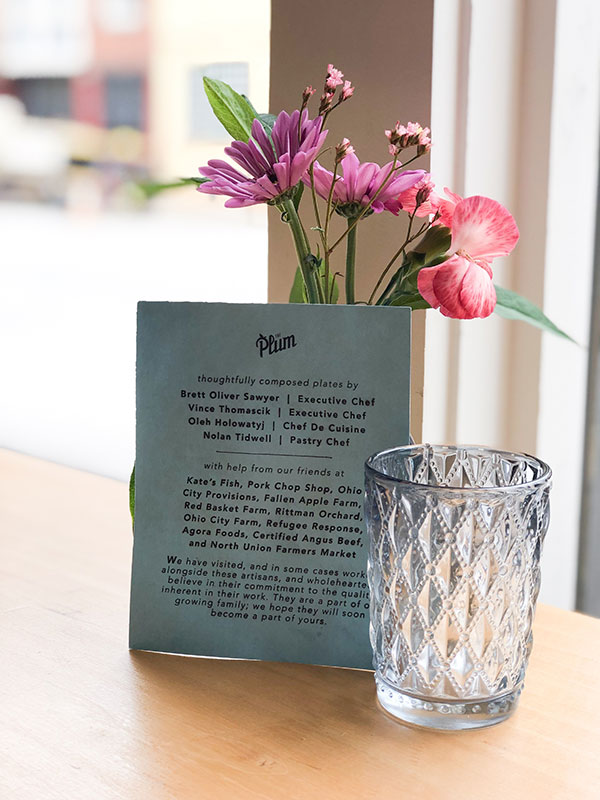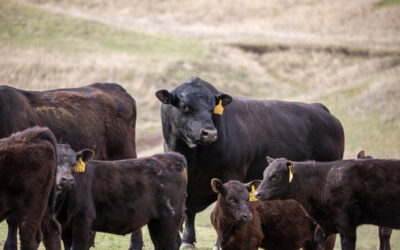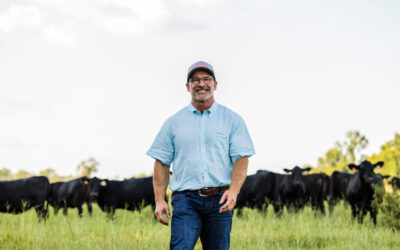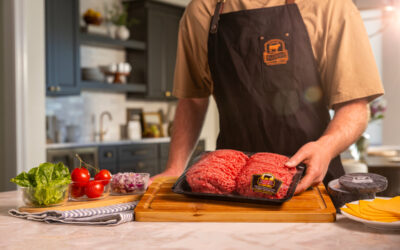
Angus producers, brand protectors
It takes the entire Angus community to build and protect the Certified Angus Beef ® brand
By: Morgan Marley
Folks in Ohio wondered what happened. A rural steakhouse across the country that had been a great licensed partner with the Certified Angus Beef® (CAB®) brand suddenly stopped buying product. They could not be reached by phone or email.
Finally, production brand manager Kara Lee called an Angus rancher 15 minutes from the business. Within three days, she had a picture of the menu and note that the restaurant was closed from a fire six months prior. Without boots on the ground, CAB may have never resolved the purchasing issue.
The brand owned by 20,000-plus Angus producers sells more than a billion pounds each year through nearly 20,000 partners around the world and pays cattlemen nearly a million dollars in the marketplace.
It takes vigilance to keep all that on track. The official kind led by CAB staff and, increasingly, Angus producers who keep a sharp eye on ads and menus, reporting possible “issues” to the company.
Great taste is a brand promise that must be ensured.
“All the value that the CAB brand creates is based on a pull-through model, from the consumer all the way back to the ranch,” Lee says.
When someone orders a CAB steak and thoroughly enjoys it, that builds a mental bond, she says. As a result, the restaurant keeps buying the brand, which builds demand for Angus genetics.
“On the other hand, for the consumer who has a subpar eating experience and then sees our marks on a menu, that has created a negative connotation,” she says.
There is a lot of “Angus confusion,” with dozens of brands claiming an Angus connection, but not all meet carcass specifications. “We started with Angus,” Lee says, “but that is where a lot of other brands stopped.”
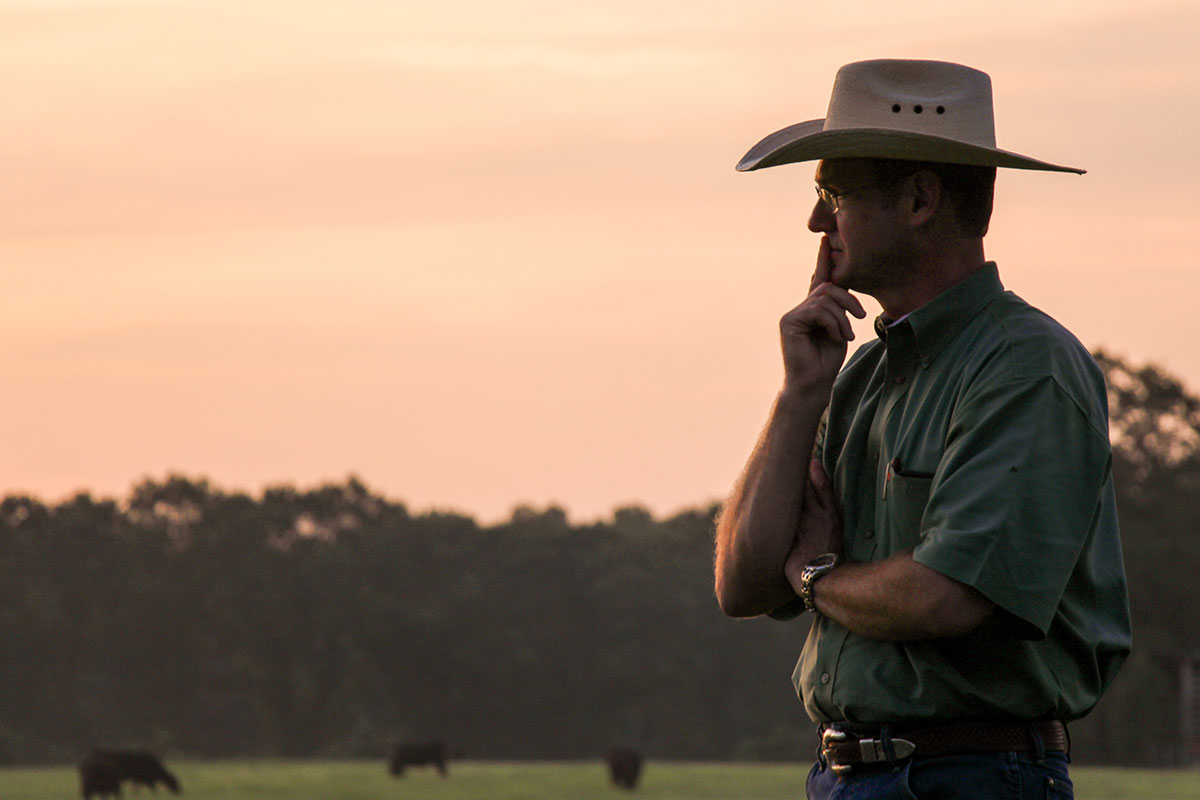
Amanda Barstow, CAB director of brand engagement, has spent more than 24 years tracking production, sales, distribution and use. Only about 5% of company staff work on her team, “brand police” protecting 19 trademarks in nearly 100 countries.
“We also monitor for other use of our marks or anything similar by different entities that aren’t licensees,” Barstow says. If not for such efforts, trademark integrity can be lost in any country where it’s registered but not monitored.
That takes a lot of data and audited reporting on every pound, starting with USDA grading certification and the count at each licensed plant.
“From there, the packer gives us specific information for each case and the number of cases in total pounds sold to each of their customers,” Barstow says. “Then down the line, every distributor and processor reports their sales to us as well. It’s like balancing your checkbook, only with pounds versus dollars.”
It comes down to making sure restaurants that advertise CAB are actually buying it. Misrepresentation at that level is the most “common” infraction, but uncommon in that it affects just 2% of customers. Still, Barstow says protecting consumers is her first priority.
Anyone can purchase the brand from licensed distributors, but not all buyers are licensed. They must be in order to use the brand’s trademarks and not just CAB or “Certified Angus,” as seen on a lot of menus—both incorrect references, Barstow points out.
Last year the brand conducted research to see which uses resonate most with consumers.
“We found ‘Certified Angus’ felt more generic or maybe even lower quality than ‘Certified Angus Beef,’” Barstow says. “They were completely turned off by the ‘CAB’ acronym because they didn’t know what it meant. In the end, they liked the formality of the full brand name.”
That’s in contrast to cattlemen who know the meaning and see the CAB premium listed on a harvest report.
When consumers see the logo, they don’t need to read anything else, she says, but many high-end restaurants only use the three-word brand name.
“I love the pride that our Angus producers have in the brand,” Lee says. “I get a lot of folks who will call or send me a picture of a Certified Angus Beef brand ribeye steak and they’ll ask where the logo is.”
“A lot of cattlemen think it’s a problem when it just says Certified Angus Beef, when in fact, we’re thrilled if it has all three words,” Barstow says.
Angus producers are eyes and ears for their brand, going into stores and restaurants in rural America where the brand’s sales team may never stop.
“Brand protection sits squarely on all of our shoulders because if we’re not all doing our part to maintain brand integrity, the foundation begins to erode one brick at a time,” Lee says.
Even the most painstaking audit can miss remote details. “Don’t assume we know,” Barstow says.
That’s why it helps to have active monitoring through Angus members.
“If you are at a restaurant or see an ad about the brand and notice our marks being used incorrectly, let us know,” Barstow requests: Take a picture of every page of the menu, write down the restaurant or retailer address, and issue, then email it to menus@certifiedangusbeef.com. That goes directly to a staff member who monitors these issues and will follow-up with the account.
“It’s like that old saying about our kids, ‘it takes a village,’” she says. “But truly you have to have people interested in maintaining the brand everywhere.”
It takes the whole Angus community to protect their brand.
Originally ran in the Angus Journal.
You May Also Like…
From Decline to Dominance
Initiated from a simple yet visionary idea, and pursued through the grit and tenacity of Angus breeders seeking a better future for the breed and Association members, it’s no accident that Certified Angus Beef is where it is today.
Smitty’s Service on CAB Board
Lamb continues to find himself struck by just how far-reaching the Angus breed has become. The brand’s growing demand and rising prime carcasses left a strong impression. He hopes everyone recognizes the vital connection built between consumers and Angus producers. Humbled by the opportunity to serve, Lamb reflects on his time as chairman with gratitude.
Success, Despite Challenges
Today’s market is complex and competitive. The collective effort of stakeholders across the supply chain positions Certified Angus Beef to meet the record demand for premium beef moving forward. Signals across the beef industry are clear and Angus farmers and ranchers seeking high-quality genetics that deliver premium beef are producing a product in high demand.

